Birds and Sharks and Peter Craven
 I’ve got pieces in the September issues of The Monthly and Australian Book Review, both of which are out today (and neither of which, sadly, are online). At first glance there’s not a lot to connect them – the Monthly piece is about the trip I took in late June to go diving with whale sharks at Ningaloo, while the Australian Book Review piece is a review of Jeremy Mynott’s delightfully omnivorous book about birds and birdwatching, Birdscapes
I’ve got pieces in the September issues of The Monthly and Australian Book Review, both of which are out today (and neither of which, sadly, are online). At first glance there’s not a lot to connect them – the Monthly piece is about the trip I took in late June to go diving with whale sharks at Ningaloo, while the Australian Book Review piece is a review of Jeremy Mynott’s delightfully omnivorous book about birds and birdwatching, Birdscapes – but in a way they’re not as disparate as they sound, since both are interested in the question of what we see when we look at animals, and the social context of that observation.
The September issue of Australian Book Review also boasts Peter Craven’s review of the Macquarie PEN Anthology of Australian Literature. To call it a bracing critique is an understatement; it reads more like the critical equivalent of a hand grenade, pointing out omissions, rubbishing the selection and questioning the logic of the anthology’s interaction with what Craven regards as the Australian canon.
I think it’s probably worth pointing out that Craven has long been a champion of the Australian modernist canon, and at least part of his irritation with the collection seems to be a function of his view that this significant part of Australian literary history is not dealt with in a manner which reflects its richness or its diversity. But it’s his criticisms of the anthology’s treatment of Aboriginal writers and writing which are likely to attract the most attention:
“This leaves the final glaring failure of the PEN anthology. It overflows with Aboriginal writing, much of which has no literary value whatever. This is inexplicable, given the availability of the Macquarie PEN Anthology of Aboriginal Writing, of which this collection is a ‘different configuration”. It is hard to see what can have possessed the editors . . . to publish reams and reams of everything from Bennelong’s letter to speeches by Marcia Langton – and every kind of doggerel and naive bit of memoir besides . . . The sheer quantity of Aboriginal writing included in the volume – much of it devoid of literary quality or even literary ambition – is an egregious mistake. It diminishes the importance of Aboriginal culture and obscures the work of serious black writers, such as Alexis Wright, who now constitute a tiny fraction of the whole.”
Not having read the collection in any great detail myself, I don’t feel in a position to comment, but I would say two things. The first is that I feel for the editors, who have, beyond a doubt, taken on a thankless task. As someone who’s edited anthologies before, and is in the early stages of another one at the moment, I know how incredibly difficult it is to satisfy everyone, and there’s no doubt that problem is all the more acute when the collection in question is supposed to be representative of something as vexed as a national literature. The second is to register the fact that Craven’s criticisms, while made from a quite different ideological perspective, echo those made by Ivor Indyk in the Australian Literary Review, who also questioned the collection’s decision to include political speeches and similar works at the expense of writers such as Ruth Park and Dal Stivens, before going on to argue:
“I am happy to embrace the possibility that any kind of writing could have literary qualities but there is a danger here: if, out of a sense of crisis, you include in an anthology of Australian literature all that you think is necessary for its appreciation, then the entity itself might easily go from a state of threatened non-existence to a state in which it included so much that it ceased to be an entity at all.”
Kerryn Goldsworthy, who edited the post-1950 fiction for the collection, has responded to the criticisms Indyk made in the same piece about the under-representation of migrant writers over at Still Life with Cat, but it seems to me that both Indyk and Craven are, in slightly different ways, touching upon a real question about how we define literature in this context. Is Robert Menzies’ ‘Forgotten People’ speech (which is in the collection) literature? No? The what about Ned Kelly and Dan Byrne’s Jerilderie Letter? That seems less problematic at first blush, though Indyk at least finds it a “murderous and . . . maniacal rant”, and compares it to Mein Kampf. And including a petitioner letter of this sort also seems to immediately open the door to the body of similar works by Aboriginal writers, which Craven at least regards as possessing dubious literary merit.
Part of the problem is adopting a position where the notion of “literature” is something that needs defending from the non-literary, since doing so immediately creates a sense of crisis and embattlement. Yet once that distinction is given away, the emphasis in the title of such a collection quickly falls upon the “Australian”, and the question Indyk poses above becomes particularly acute. My sense (on a pretty cursory read, it must be said) is that the editors have attempted to straddle this divide, presenting a range of writing which seeks to offer a glimpse of the textures and variousness of the Australian experience, and its processing into collective and individual consciousness.
Whether they’ve been successful at this or not is an open question. Indyk and Craven think not, others are more positive. But it seems to me they’ve made the right decision in principle by giving away strict definitions of the “literary”. Because while managing the diversity and competing demands for attention such a decision throws up creates a whole range of new problems, it also opens our minds to just how many ways there are of being Australian, and of the complexities of experience that simple term too often obscures or denies. Does that create an implicit demand that Australian literature be concerned with Australia, or Australians or Australian experience? Probably. Is that appropriate? Perhaps, perhaps not, though as The Man Who Loved Children demonstrates that’s hardly a new problem. But what does matter is that the collection offer something complex and multi-dimensional enough to accommodate the often competing voices with which we speak, and – perhaps just as importantly – to offer a sense of the context out of which these voices speak.
Break text





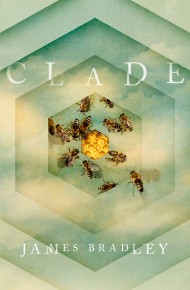

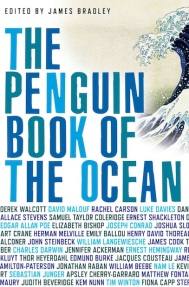
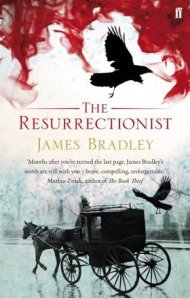
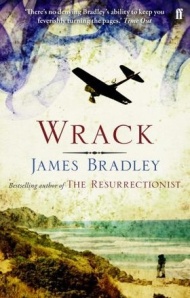
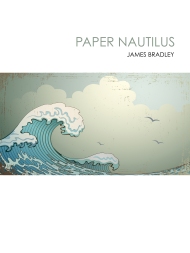
Thanks, James, this is a lovely thoughtful post.
To most scholars of Australian lit it’ll be clear that Craven’s review is extremely misleading about the anthology’s contents and aims. The review includes a number of specific indications that Craven has, um, ignored the introductory essays, not to mention anything that happened before 1950. One would never guess, reading that review, that the anthology covers over 200 years of settlement, or that many of the lofty criticisms in the review have actually been addressed in the various (substantial and scholarly, in every case) introductory essays, which have not only not been engaged with but have not even been mentioned.
The most interesting question, as you rightly point out, is how we define ‘literature’. Both Ivor Indyk and Peter Craven are well known as traditionalists in this respect and in each case their response on this front was predictable. If Peter Craven had read the general editor Nick Jose’s introductory essay and engaged with it thoughtfully, his review might have been worth reading. Ivor, on the other hand, read the book very carefully and his review was state-of-the-art, whichever bits of it one might have agreed or disagreed with.
(The migrant writers he missed were of a very particular kind, though he muddied those waters by saying first up that ‘representation of migrant writers is poor’, which was what I was responding to at m’blog. Ivor’s review was actually quite positive except for that and one or two other points, BTW.)
The ‘What is literature’ question came up in the Book Show interview that Nicole Moore, Prof Rob Dixon and I did with Ramona Koval on July 31. We argued to Ramona that the documents in question had literary qualities, including the use of rhetoric to persuade and to move the reader, and that this was enough to make a place for them in an inclusive anothology like this one.
The Jerilderie Letter (selected by pre-1900 section editor Prof Elizabeth Webby, though you’d never know that from Craven’s review) is a good example of one of the things we were trying, as a team, to do with the anthology: two of my selections were Delia Falconer’s wonderful Kelly story ‘The Republic of Love’ and the first couple of pages of True History of the Kelly Gang, and both are rendered (even) richer by easy reference to the Kelly saga’s ur-document, with which neither schoolchildren nor international readers can be assumed to be familiar. Since the anthology was conceived with thoughts of secondary and tertiary education in mind as well as other things, much attention was paid by all of us to the way that the included pieces would speak to and illuminate each other.
And so it is a success, in literary terms, because it raises the central question of literature, which is of course the question of what literature could be.
Kerryn – thank you as well, both for your kind words and your equally thoughtful comment. Firstly let me do a quick mea culpa: you’re right, Ivor’s review was broadly very positive, and I’ve somewhat sloppily made it sound like it’s not, which is unfair, to both the book and him.
More importantly though, I think your point about audience is a good one: the anthology isn’t a cultural monument built in isolation, but a text created to be used, mostly by students and mostly overseas, and as such it needs to contextualize itself as it goes.
Thanks, James, for a really interesting sum-up of the story so far of the gloomy little rain cloud that began raining on the parade of our new anthology. Australia needs its own Norton. There is nothing like a bigass brand to instill confidence in a consuming public. After all, the belles lettres of France became so when the bourgeousie started buying it.
PEN and Macquarie managed to do more than six years of work to attempt it, and as a result, teachers are already using it as a classroom resource. I speak as a teacher and a mini-minion who did some early research into the absence of our own local Doorstopper akin to the Norton. During the research I loved finding a 1960s anthology that contained a recipe for pumpkin scones, alongside excerpts from ‘The Getting of Wisdom’. I baked these pumpkin scones for the first PM Anth meeting and we digested them with relish along with the future of Aust.lit. So nyaah to those who put boundaries on literature. In fact, I’d like to see a whole section devoted to contemporary food writing next time round, but you can’t always get what you want. But I think in the Anthology, the we are getting what we need.
It’s up to the Little Magazines (that lovely but diminished tradition) and the niche publishers to give us our sexy belles lettres: and it’s up to the Doorstoppers to haul our literary heritage over the big hump of the turn of our century. Us English teachers can decry the pastichery and abysmal desecration of literature that was the postmodern pillaging of The Syllabus, but – it’s what we’re stuck with, until the next education revolution reverts back to those funny things like truth and beauty (the subjective stuff.) Until then, the parity between ‘Romulus My Father’ and whatever the hell a kid can find that “relates” to it as a text will have to do. Aust.lit is locked into being taught in the NSW system where relativity and de-privileging (of anything once ‘literary’ or more experimental than the generic mainstream) are the foremost approach. If Quality has suffered as a result of the leveling, well, oops! Academics and critics must face themselves in that mirror before readers should have to.
The wonderful thing about things like the Jerilderee letter and other bits of random unliterary nuggets (A Drover’s Wife’s shopping list may appear one day and I’d not be surprised) is that it makes the Anthology multi-disciplinary, in schools, particularly. Some teachers are made to teach up to four different subjects a day, especially when they are being nice to departments who provide frquent slices of cake and a relax between the forever uphill grind. Imagine having an Anthology that could inspire you and your lessons for English, Drama, History, Geography, Visual Art and beyond? Even the Classics -David Maouf’s wonderful translations exercise, for starters.
I think the belles lettres mavens need to allow for a little pragmatism.
I am so excited I have an opinion on this, I may repost it on my blog.
MgB
An afterthought — yes, Ivor had already addressed the issue of ‘literary qualities’ as per James’s quotation in the original post. But when Ivor says there is a ‘danger’ of it ‘ceasing to be an entity at all’ then I move closer to what I think Ken Wark is saying up there at 12.51 pm. I don’t think ‘literature’ is an entity, in and of itself. I think it is the name of a category, into which people put things, or not. What they put in it depends on who they are, where they are, what year/decade/century it is, and why they’re talking about literature at all.
Mitzi, I’m so glad the anthology looks useful to you. Have a read of Olga Masters’ truly wonderful story ‘The Christmas Parcel’ if you don’t know it already. You could call it not-enough-food writing. It’s also about children in NSW, so since that should make it “relevant” (*spits*), you might be able to sneak it in under the radar, and the fact that Olga Masters was Roy Masters’ mother should count for something too.
Thank you Mitzi for your wonderfully enraged and passionate response. I generally try and keep my views on education to myself because I sound more like a columnist on The Australian by the day, but don’t worry, on the subject of what and how kids are taught about books and film, I hear you.
I’m interested though by your view there’s been a negative response to the anthology, because that hasn’t been my impression at all. Indeed I would have said quite the opposite: by and large the reviews have been positive, and the project has enjoyed considerable goodwill from the literary community (I can’t speak for teachers but it’s heartening to hear it’s already proving useful).
That said, I have to confess that I actually liked Peter’s review. Not because I necessarily agree with what he’s saying, but because it’s so obviously designed to cause trouble. Whether that’s responsible or not, or good reviewing or not are separate questions but I very much doubt we’d be having the conversation we are now if he’d written a broadly positive review. I know he’s made me think about the collection rather harder than I had, and his review has elicited fascinating responses from both you and Kerryn (and others I’ve had off-site) all of which have served to remind us that Australian writing can matter, and to make us ask some questions about what it is, what it’s for, and how we should think and talk about it. Which is, as Ken points out above, exactly what a collection like this should do, and is all to the good as far as I’m concerned.
Causing trouble : a noble calling. Let’s face it, Australian reviewing tends towards the anodyne, and even to the Pooteresque, so La Craven’s operatic outbursts at least have entertainment value.
Sometimes i think there’s little or no recognition of the fact that the readers ( not the scholars, the intellectual mavens, or the writers) actually read reviews hoping for a bit of entertainment as well as information. I have only ever laughed out loud twice while reading a review in an Australian journal, and one of those was by Angela Carter.
In academic or research terms when people refer to the ‘literature’ they simply mean all the things that have been written regarding the subject. So this anthology is properly named, in that way, or alternatively, if you simply removed the word ‘literature’ from the title of this anthology and substituted the word ‘writing’ there would be no cause for discomfort, would there?
In fact if we stopped using the word literature altogether there would be no real harm done, except to some people’s blood pressure….would there?
James:
I thought you and your readers would like to see the first overseas of the review of the anthology, published by W.W. Norton under the title of The Literature of Australia: An Anthology, with a special foreword by Tom Keneally.
It’s from this week’s Time Out in London:
Read full review here.